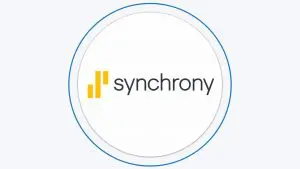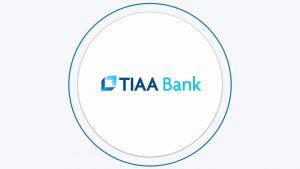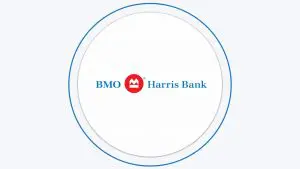Table Of Content
When a CD (Certificate of Deposit) matures, it means that the agreed-upon term of the CD has reached its end, and the CD has reached its full maturity period.
CDs are time-bound, fixed-term deposit accounts offered by banks and credit unions to investors. The maturity period is the length of time during which the CD is held by the investor, and it is determined at the time of purchase.
The maturity date is the date on which the CD reaches its full maturity period, and the initial principal (the amount of money deposited) along with any accrued interest becomes available for withdrawal without incurring any penalties.
What Is A Grace Period And Why It's Important?
A CD grace period is a short period of time that follows the maturity date of the CD during which the account holder has some flexibility in deciding what to do with the funds without incurring any penalties.
The grace period typically lasts a few days to a week, but the specific duration can vary depending on the financial institution and the terms of the CD.
The grace period is essential because it provides account holders with a window of time to consider their financial options and make informed decisions without being rushed. It gives them the opportunity to assess their current financial situation, evaluate their goals, and explore alternative investment opportunities.
If the account holder doesn't take any action during the grace period, most financial institutions will automatically renew the CD for the same term at the prevailing interest rate.

What Are Your Options When Your CD Matures?
When your CD matures, and during the grace period, you have several options for what to do with the funds. Here are the common options you might have:
Renew the CD With New Term: Depending on your goals, you can choose to renew the CD for another term. Suppose you are satisfied with the interest rate and the terms offered by the financial institution. In that case, you can reinvest the principal and interest from the matured CD into a new CD with a similar or different term. (Don't forget to compare rates before)
Withdraw the Funds (Partially Or In Full): You have the option to withdraw the entire amount of the CD, including the initial deposit and any interest earned. After maturity, you can access the funds without incurring any penalties. Some financial institutions allow you to make a partial withdrawal of the funds while leaving the remaining amount to be reinvested in a new CD.
Automatic Renewal: If you do not take any action before the maturity date, some financial institutions will automatically renew the CD for the same term at the current interest rate.
- Rollover to a Different Account/Bank: Instead of renewing the CD, you can choose one of the different alternatives to CDs. For example, you may choose to roll over the funds into a different type of account such as an IRA (Individual Retirement Account) or a different savings or investment account. You can also move your funds to a new CD in a different bank.
Compare CDs Grace Period On Different Banks
Let's explore and compare the grace periods offered by different banks on their CDs.
By examining the varying grace periods of different financial institutions, you can gain insights into the options available when your CDs mature.
Financial Institution | Grace Period |
|---|---|
Chase Bank
| 10 days |
Bank Of America | 7 days |
Capital One Bank
| 10 days |
Discover Bank
| 9 days |
PenFed Credit Union | No Grace Period |
Citi | 7 days |
U.S. Bank
| 10 days |
Ally Bank
| 10 days |
Marcus | 10 days |
TD Bank | 10 days |
Auto Renewal: Is It A Good Idea?
Whether auto-renewal is a good idea depends on individual financial goals and the prevailing interest rate environment. Auto-renewal of a CD offers certain advantages, including time-saving convenience and maintaining the continuity of the savings plan.
However, there are downsides to consider. Auto-renewal might lead to missed opportunities for higher rates at other institutions and may not align with changing financial goals. Additionally, in a rising interest rate environment, auto renewal could lock funds into a lower rate than what is currently available.
Pros | Cons |
|---|---|
Convenience
| Missed Opportunities |
Continuity | Change in Goals |
Market Conditions | Low Rates |
Here are some factors to consider when deciding about auto-renewal:
Interest Rates: Evaluate the prevailing interest rates and compare them with the rate of the expiring CD to see if auto renewal is competitive. You'll be surprised, but due to the increased rates, even traditional banks offer good CD rates.
Financial Goals: Consider whether the current CD term and interest rate still align with your financial objectives.
Other Options: Explore alternative investment opportunities, such as opening a new CD with a different term or exploring other investment products.
Ultimately, the decision to opt for auto renewal depends on an individual's unique financial situation, risk tolerance, and long-term goals.
How Long Does It Take For A CD To Mature?
The length of time it takes for a CD to mature varies depending on the term you choose when opening the CD. CDs come with various term options, and the most common ones include:
Short-term CDs: These typically have terms ranging from a few months (e.g., 3 months, 6 months) up to 1 year. As of October 2025, there are many short-term CD with very competitive rates.
Medium-term CDs: These usually have terms between 1 year and 3 years.
Long-term CDs: These have terms longer than 3 years, which can sometimes extend up to 10 years or more.
So, the maturity period of a CD can be as short as a few months or as long as several years. When you open a CD, you will know the exact maturity date, as it is determined at the time of purchase based on the term you select.
FAQs
Can you sell a CD before maturity?
CDs are time-bound investments, and they are typically intended to be held until maturity. However, financial institutions may allow early withdrawals before maturity, but this often incurs penalties, which could result in a loss of some or all accrued interest.
Is CD interest taxable before maturity?
Yes, CD interest is generally taxable as income in the year it is earned, even if it is not withdrawn or reinvested until maturity. Interest earned on CDs is subject to federal income tax and possibly state income tax, depending on your jurisdiction.
Can money be added to a CD during the grace period?
In most cases, the grace period after CD maturity is specifically intended for deciding what to do with the existing funds. If you decide to auto-renew or put your funds in a new CD with a different term, you are allowed to add money to your CD.
Does a CD earn interest during the grace period?
No, once a CD reaches maturity, it stops earning interest during the grace period. The grace period is a brief window for the account holder to make decisions about the funds without incurring penalties, but interest accrual ends when the CD matures.
Does a 10-day grace period on a CD include weekends?
Yes, a 10-day grace period typically includes weekends. Grace periods generally consist of consecutive calendar days, including weekends and holidays, which provides the account holder with a full 10-day period to make decisions about the matured CD.
























